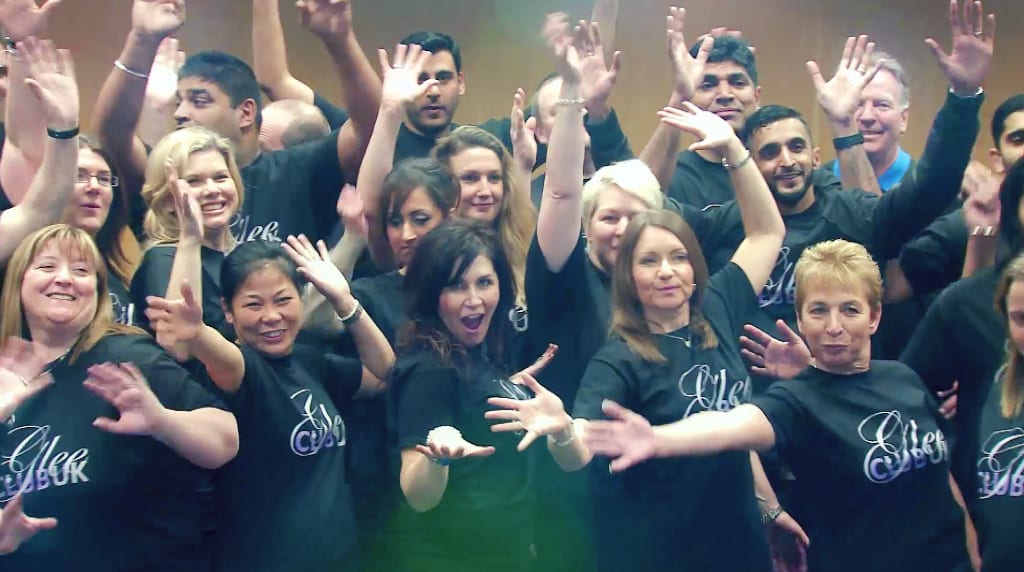Why Don't British Students Like Trying?
In schools up and down the UK, being seen to try at something is seen as desperately lame or uncool, until you succeed, that is.

Nobody likes a try-hard, ain't that the truth. Americans and Brits are similar for a number of reasons, but their approach to "trying" in school is one of many differences. British people are brought up to be acutely aware of their country's swashbuckling and domineering history, before being gently reminded that despite it leading to the title of "Great" Britain, colonialism is pretty darn bad. Where, US children are taught to celebrate their country's independence, positioning themselves as proud and unafraid to talk about it. British kids are taught realism is very different from pessimism without even looking at that fellow "Optimism," while Americans are dared to dream that dank American Dream.
A lot of differences in people stem from a child's education, as different subjects breed different points of interest. But one difference which is evidently clear outside of educational content is that British kids are less inclined to try hard. Whether through fear of failure or being ostracised, British students don't chase their goals or passions as much as American children do, especially when it comes to creative ventures.
Though a couple of years outside of a topical reference now, a few years ago you couldn't move for mention of the US sitcom Glee. This comedy series about the perennial outsiders of America's high schools was a celebration of the underdog and an uplifting tale for any child watching. It gave hope for spotty kids with unfashionable hobbies and even less fashionable clothes. But despite the close correlation between successful media in both the UK and US, there was no British remake. Most simply for the fact that it wouldn't work. If a Glee club had been installed in a British secondary school in that time period of 2009, every single student taking part would have got beaten up, because the only thing worse than someone trying is someone trying to sing and be creative.
On the reverse, Britain's most successful school-based sitcom of the last decade was The Inbetweeners, a show which championed outcasts too, though in a very different way. Rather than portray them as winners in the face of adversity, it instead chose to celebrate the fact that they were terrible, obnoxious, or completely patronising. So, it wasn't unsurprising to learn the US remake only lasted one season and found no discernible fan-base. The most popular character in The Inbetweeners' fictional school was an inherently vicious bully, highlighting the vastly different environment in the UK. No celebrity jock, no revered musician, and certainly no math whizz taking centre stage. If you wanted to be creative or have any sort of outlet, you had to stomach that passion until university at the very least. Once there, you'd be old enough to not care what others think, or at the very least be smart enough to do it in a room where no one else can see you do it.
Creative talent out of the UK is phenomenal. We have a number of comedians, musicians, actors and more that have pierced the very mainstream in all their disciplines. But most have developed their talents and skills later in life. Ricky Gervais got his big break in his late 30s. The UK's finest actors only came to prominence at post-school establishments. Even taking the exception of One Direction who became famous from a young age, they were only thrust into the spotlight at the behest of the very Americanised format of The X Factor.
The fostering of creative talent is something which isn't given enough importance in Britain. With academic exercises that are imposed, children don't feel the pressure of performing because they simply have to. But the creative arts are different, and the stakes are way higher. Social awkwardness, cringe-inducing moments, and self-preservation are so ingrained into the UK psyche that it's a struggle to break out of. Every time I write something new, I have to convince myself that it's a good idea to share it on social media, because it's still such a concern for me. But with so many examples of creative children from the US, like the cast of Stranger Things to the aforementioned cast of Glee, there is still hope.
It's true that the UK hasn't produced many Justin Biebers or Timberlakes (Justin isn't a super popular name in truth). Hell, we rarely even get a Macauley Culkin. But there is hope as shown by the fact that Millie Bobby Brown from the aforementioned Stranger Things is a Brit. Recent reports have claimed that education is stifling creativity, and the first stage of correcting a problem is recognising it. Whether the steps that follow will truly help to bridge this gap is uncertain, but at least there's a first step. Here's hoping that our very first UK Drake and Josh is just around the corner.
About the Creator
Marcus Dean
Writer, lover, war-resolver, serial cereal eater and all-round 'basically fine' human.






Comments
There are no comments for this story
Be the first to respond and start the conversation.